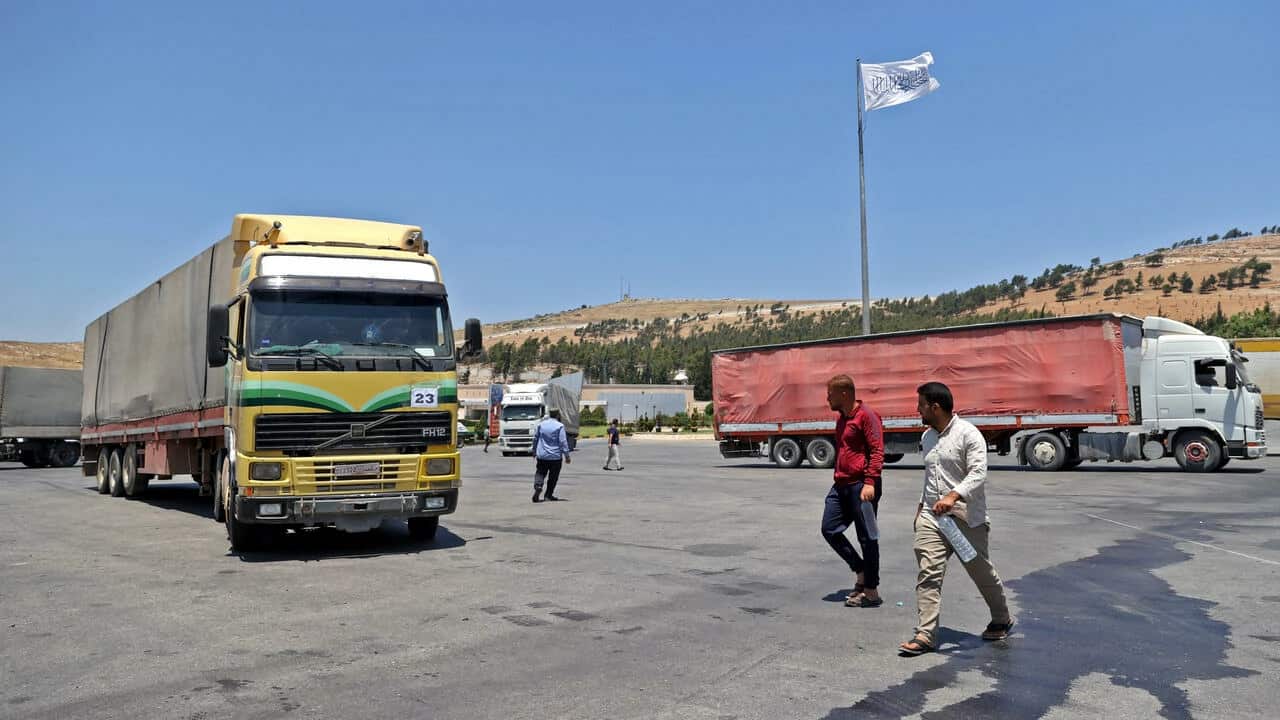Western nations had demanded a year-long extension, but a vote by the 15 members on half that is expected either later in the day or Tuesday.
“Russia forced the hand of everyone. Either close the mechanism or only six months. We cannot let people die,” one ambassador told AFP on condition of anonymity.
The aid delivery mechanism across Turkey’s border into rebel-held Syria at the Bab al-Hawa crossing is the only way United Nations assistance can reach civilians without navigating areas controlled by Syrian government forces.
The system, in place since 2014, had expired on Sunday.
The agreement breaks an impasse that had threatened to derail the life-saving supplies for the more than 2.4 million people in the northwestern Idlib region of Syria, under the control of jihadists and rebels.
Syrian ally Russia on Friday vetoed a Security Council resolution that would have prolonged the mechanism by one year, and Western powers then voted down Moscow’s competing resolution that proposed extending approval by just six months.
The previous draft by Ireland and Norway suggested the possibility of a halt to the mechanism in January next year if the Security Council so decided.
The new Irish-Norwegian text provides for a renewal in January 2023 for another six months, subject to the adoption of a new resolution.
It also requires a briefing every two months on the implementation of the system and calls for a special report on humanitarian needs in the region to the UN secretary-general by December 10.
Russia’s deputy ambassador to the UN Dmitry Polyanski said Moscow would adopt the resolution with “a minimal modification.”
An ambassador of an influential Security Council member said his country would adopt the resolution.
For resolutions to be adopted, at least nine of the 15 members must support it, with none of the permanent members wielding their veto.
Moscow has curtailed a number of Western-backed measures in recent years, using its veto 17 times in relation to Syria since the war’s outbreak in 2011.
More than 4,600 aid trucks, carrying mostly food, have crossed Bab al-Hawa this year, helping some 2.4 million people, according to the UN’s Office for the Coordination of Humanitarian Affairs.
The mechanism has been extended for only six months in the past, although this short period makes it difficult to plan delivery, aid workers say.
Dozens of NGOs and several senior UN officials had lobbied Security Council members for the year-long cross-border aid clearance.
UN expert Richard Gowan said the war in Ukraine has “complicated negotiations on Syria this year.”








